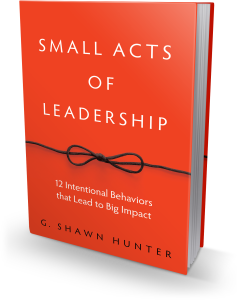You Can Reduce Election Stress and Up Your Game
Your value to an organization is not in the hours you clock, the number of emails you flip, slide decks you build, and it’s certainly not in the air miles you punch to get in Zone 1 boarding.
Your value is in the creative energy and impact you bring to the table. The only way we can consistently and effectively bring our best ideas, and our greatest impact to work is if we believe our work matters, and if we believe our actions make a positive difference.
But it’s a stressful time right now. What with the election looming, it’s easy to get distracted and compulsively check the poll numbers (link not provided, check it later).
Over half of Americans are more stressed out now than a year ago. Fifty-two percent of Americans claim that the election is a “very or somewhat significant source of stress,” according to the American Psychological Association.
And when we are compulsively checking social media, we are creating yet more distracted anxiety, which in turn reduces our ability to think clearly, deeply, and coherently on our work. It’s a self-defeating downward spiral.
It’s well understood that high levels of chronic and acute stress impair our ability to think creatively, solve complex problems, and generate meaningful ideas. Stress is a response to a trigger, a circumstance, a rapidly changing environment, or a negative thought. How we react to these triggers can be the difference between positive or negative emotional states.
We can insulate ourselves against these stresses, and increase our effectiveness and impact. For example, public speaking is widely known to be one of the most stressful circumstances we encounter. It’s such a reliable way to induce stress that there is a test named after it called the Trier Social Stress Test.
Here’s how it works in one experiment:
Eighty-five people were asked to prepare a five minute speech on “why I would be a good candidate for an administrative assistant position at __________ university.” Then, they had to deliver their speech to a panel of stern, unwelcoming evaluators. And finally, if that wasn’t quite enough stress, participants were asked to count backwards from 2,083 by 13s for 5 min under harassing conditions. The evaluators would frown, and constantly ask them to go faster.
After the experience, researchers measured the saliva of participants for cortisol, and other stress markers. Those who were asked, prior to the test, to thoughtfully reflect on their own most important personal values, had lower levels of stress during, and after, the experience.
Lower stress also improves our creative impact. In another study, David Crewswell and his colleagues worked with seventy-three people between the ages of 18 and 34 and gave them a series of creative tests that go like this:
Read these three words: flake, mobile, cone. Now, think of a word that, when combined with all three, make a new word. The word “snow” works, because we can now create snow-flake, snow-mobile, and snow-cone. The task requires creative thinking. It requires a little focus and thoughtfulness, which is the kind of thinking we need every day in our work.
Before each small creative task, half of the group was asked to reflect on values most important to them such as family relationships, artistic ability, independence, religious values or other aspects of their life that they valued deeply. These reflections of self-affirmation had a stress-protective effect on their performance.
Every meeting we have, phone call we place, report we prepare, or presentation we deliver, is a performance opportunity. It’s an opportunity to bring our very best ideas, and impact to our work. When we take a moment to reflect on the values and relationships we hold dear to our identity, it reduces our stress, and increases our impact.
To learn more about adopting a growth mindset, and upping your game at work:
- Steve Shapiro on Out-Innovate the Competition
- Marilee Adams on Question Thinking: The Key to Transforming Mindsets
- ____________________________________________________

Twitter: @gshunter
Say hello: email@gshunter.com
Web: www.shawnhunter.com



